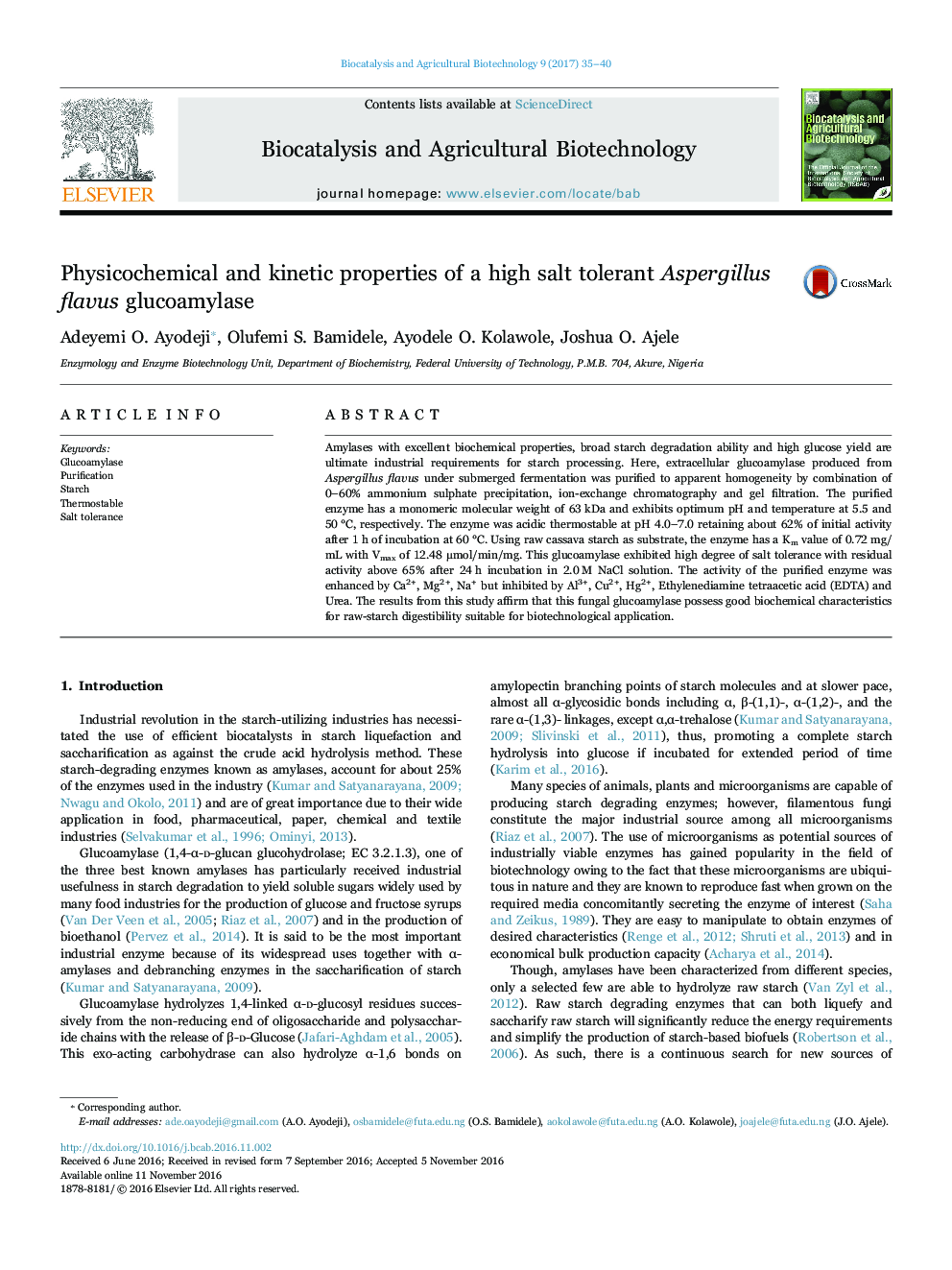| Article ID | Journal | Published Year | Pages | File Type |
|---|---|---|---|---|
| 5520574 | Biocatalysis and Agricultural Biotechnology | 2017 | 6 Pages |
â¢Glucoamylase was produced from Aspergillus flavus using starch as sole carbon source.â¢The amylase was purified in a 3-step process to homogeneity giving a good yield.â¢The thermostability, salt-tolerance and kinetic properties of the enzyme were studied.â¢Raw-starch digestibility of the amylase was tested with raw cassava and corn starches.
Amylases with excellent biochemical properties, broad starch degradation ability and high glucose yield are ultimate industrial requirements for starch processing. Here, extracellular glucoamylase produced from Aspergillus flavus under submerged fermentation was purified to apparent homogeneity by combination of 0-60% ammonium sulphate precipitation, ion-exchange chromatography and gel filtration. The purified enzyme has a monomeric molecular weight of 63 kDa and exhibits optimum pH and temperature at 5.5 and 50 °C, respectively. The enzyme was acidic thermostable at pH 4.0-7.0 retaining about 62% of initial activity after 1 h of incubation at 60 °C. Using raw cassava starch as substrate, the enzyme has a Km value of 0.72 mg/mL with Vmax of 12.48 μmol/min/mg. This glucoamylase exhibited high degree of salt tolerance with residual activity above 65% after 24 h incubation in 2.0 M NaCl solution. The activity of the purified enzyme was enhanced by Ca2+, Mg2+, Na+ but inhibited by Al3+, Cu2+, Hg2+, Ethylenediamine tetraacetic acid (EDTA) and Urea. The results from this study affirm that this fungal glucoamylase possess good biochemical characteristics for raw-starch digestibility suitable for biotechnological application.
